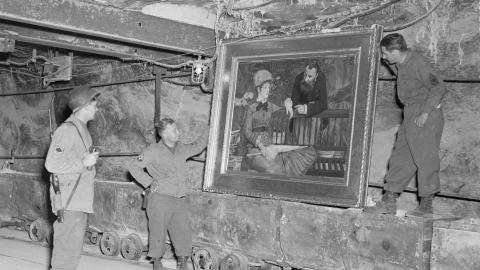In Pulaski, Tennessee, a group of Confederate veterans convenes to form a secret society that they christen the Ku Klux Klan. The first incarnation of the KKK rapidly grew from a secret social fraternity to a paramilitary force bent on reversing the federal government's progressive Reconstruction Era-activities in the South, especially policies that elevated the rights of the local African American population.The name of the Ku Klux Klan was derived from the Greek word kyklos, meaning "circle," and the Scottish-Gaelic word "clan", and not, as Sir Arthur Conan Doyle speculated in ‘The Five Orange Pips’ (1891), derived from “the fanciful resemblance to the sound produced by cocking a rifle”. which was probably chosen for the sake of alliteration.
Under a platform of philosophised white racial superiority, the group employed violence as a means of pushing back Reconstruction and its enfranchisement of African Americans. Former Confederate General Nathan Bedford Forrest was the KKK's first Grand Wizard; in 1869, he unsuccessfully tried to disband it after he grew critical of the Klan's excessive violence.Most prominent in counties where the races were relatively balanced, the KKK engaged in terrorist raids against African Americans and white Republicans at night, employing intimidation, destruction of property, assault, and murder to achieve its aims and influence upcoming elections. In a few Southern states, Republicans organized militia units to break up the Klan.
In 1871, the Ku Klux Act passed Congress, authorising President Ulysses S. Grant to use military force to suppress the KKK. The Ku Klux Act resulted in nine South Carolina counties being placed under martial law and thousands of arrests. In 1882, the U.S. Supreme Court declared the Ku Klux Act unconstitutional, but by that time Reconstruction had ended and the KKK had faded away.The 20th century witnessed two revivals of the KKK: one in response to immigration in the 1910s and 20s, and another in response to the African American civil rights movement of the 1950s and 60s.








